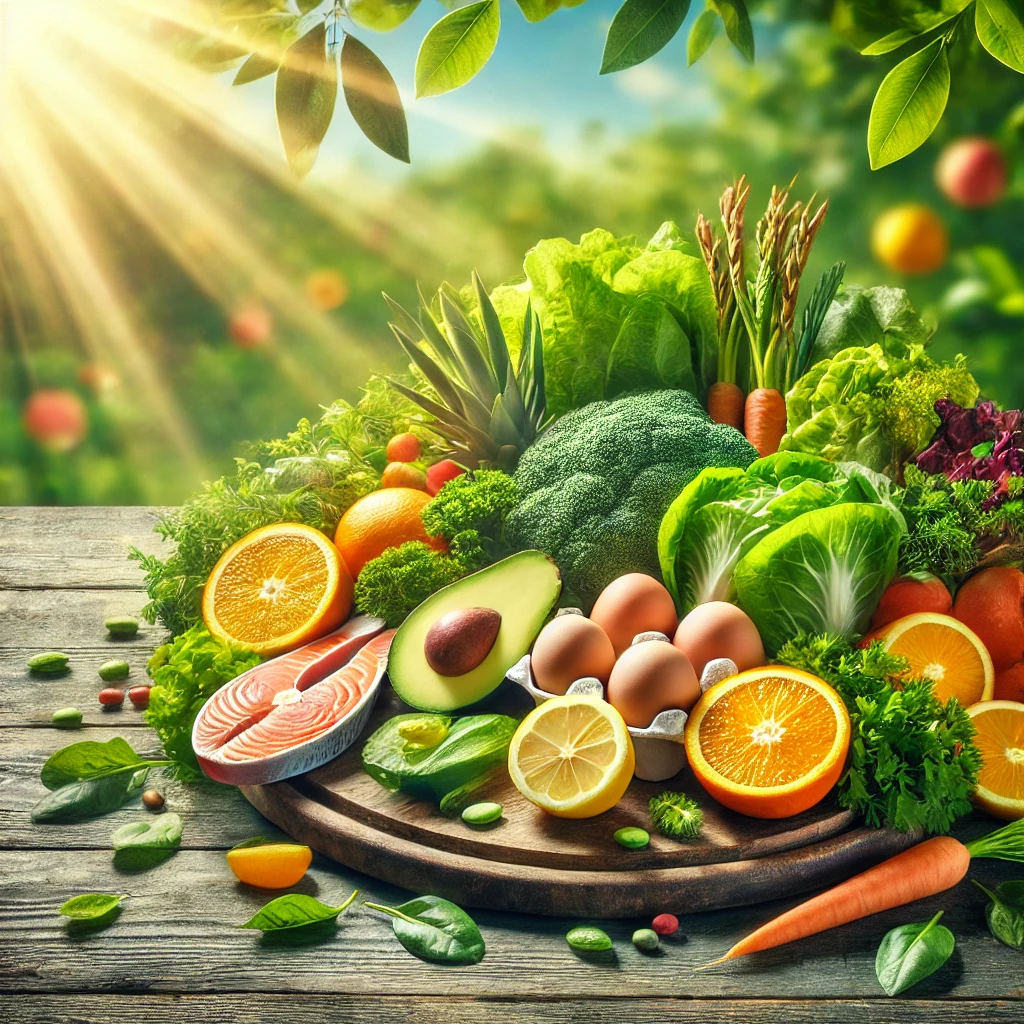4 Key Vitamins That Can Help Manage Depression and Anxiety
Have you ever wondered if vitamin deficiencies might be affecting your mental health? Could boosting certain key nutrients help alleviate symptoms of depression or anxiety? Let’s dive into four essential vitamins that could play a vital role in your emotional well-being.
Mental health challenges like depression and anxiety are complex, but addressing deficiencies in the following vitamins might be a step toward relief.

1. Vitamin B12: The Energy and Mood Booster
Vitamin B12 is crucial for the nervous system and plays a significant role in producing serotonin and other neurotransmitters that affect mood. Research suggests that lower levels of vitamin B12 are often seen in individuals with depression and even obsessive-compulsive disorder (OCD).
Symptoms of a Vitamin B12 Deficiency
- Weakness, fatigue, depression, and anxiety
- Numbness or tingling in extremities
- Balance difficulties
- Anemia and tongue inflammation
- Memory loss and trouble thinking clearly
In the USA, common causes of deficiency include conditions like gastric surgery, pernicious anemia, Crohn’s disease, and a vegan or vegetarian diet. Blood tests for vitamin B12 are available, though not perfectly accurate. If you’ve been feeling persistently low, it’s a good idea to ask your doctor about testing.
Have you checked your vitamin B12 levels lately? If not, it might be time.
2. Folate (Vitamin B9): The Mental Health Ally
Another major player in mood regulation is folate, also known as vitamin B9. It aids in serotonin production through methylation, a process critical for brain function. Studies show that people with major depression often have lower folate levels, and the severity of depression correlates with the deficiency.
Key Facts About Folate Deficiency
- Low folate can make you less responsive to antidepressants, a condition known as treatment resistance.
- A specific form of folate called methylfolate is even used as a prescription treatment for depression in the USA.
Symptoms of Folate Deficiency
- Fatigue and weakness
- Pale skin
- Irritability and depression
Supplements or dietary sources like leafy greens, beans, and fortified cereals can help, but testing your levels is a great starting point.
3. Vitamin D: The Sunshine Vitamin
Vitamin D, produced when your skin is exposed to sunlight, has been gaining attention for its role in mental health. Beyond keeping your bones strong, it’s essential for the production of serotonin and dopamine, often called the “calming” and “happy” hormones.
Vitamin D in the USA
Shockingly, 41.6% of Americans are vitamin D deficient, with rates higher among people of color (82.1%) and Hispanics (69.2%). This widespread deficiency could explain part of the growing mental health challenges in the country.
How to Boost Vitamin D
- Spend time outdoors in the sunlight.
- Include foods like fatty fish, fortified milk, or supplements in your diet.
4. Vitamin C: The Stress Fighter
Known for its immune-boosting properties, Vitamin C also has powerful effects on mental health. Studies show that high doses (around 3 grams daily) can significantly reduce depressive symptoms, even in otherwise healthy people.
Benefits of Vitamin C
- Supports the immune system.
- Enhances adrenal health to combat stress.
- Protects cardiovascular health.
Keep in mind, large doses of vitamin C may cause digestive upset. If this happens, gradually reduce your intake to find a comfortable dose.
Final Thoughts: Small Changes, Big Impacts
While vitamins alone aren’t a cure-all, ensuring you have adequate levels of these nutrients could be a game-changer in your journey to better mental health. Consider discussing these options with your doctor and checking for deficiencies.
For more natural strategies for depression and anxiety, visit medicaltimes.io for trusted advice and resources.
Reference Websites:
Top 10 Frequently Asked Questions (FAQs):
- Can vitamin deficiencies cause anxiety or depression?
Yes, deficiencies in vitamins like B12, D, and folate are linked to symptoms of depression and anxiety. - What are the best dietary sources of vitamin B12?
Foods like meat, fish, eggs, and dairy are excellent sources of B12. - Can a vegan diet lead to vitamin deficiencies?
Yes, vegans may lack B12 and need fortified foods or supplements. - How much vitamin D should I take daily?
It depends on your blood levels, but 1,000–2,000 IU is common. Consult your doctor for personalized advice. - What are symptoms of a vitamin D deficiency?
Fatigue, low mood, bone pain, and frequent illnesses. - Is high-dose vitamin C safe?
Generally, yes, but high doses may cause stomach upset in some individuals. - Does low folate affect antidepressant effectiveness?
Yes, people with low folate levels may not respond well to antidepressants. - Can supplements replace a healthy diet?
Supplements are helpful but should complement a balanced diet, not replace it. - Should I take methylfolate instead of regular folate?
Methylfolate may be better for some people, especially those with depression. - Where can I learn more about natural remedies for mental health?
Visit medicaltimes.io for expert insights and recommendations.